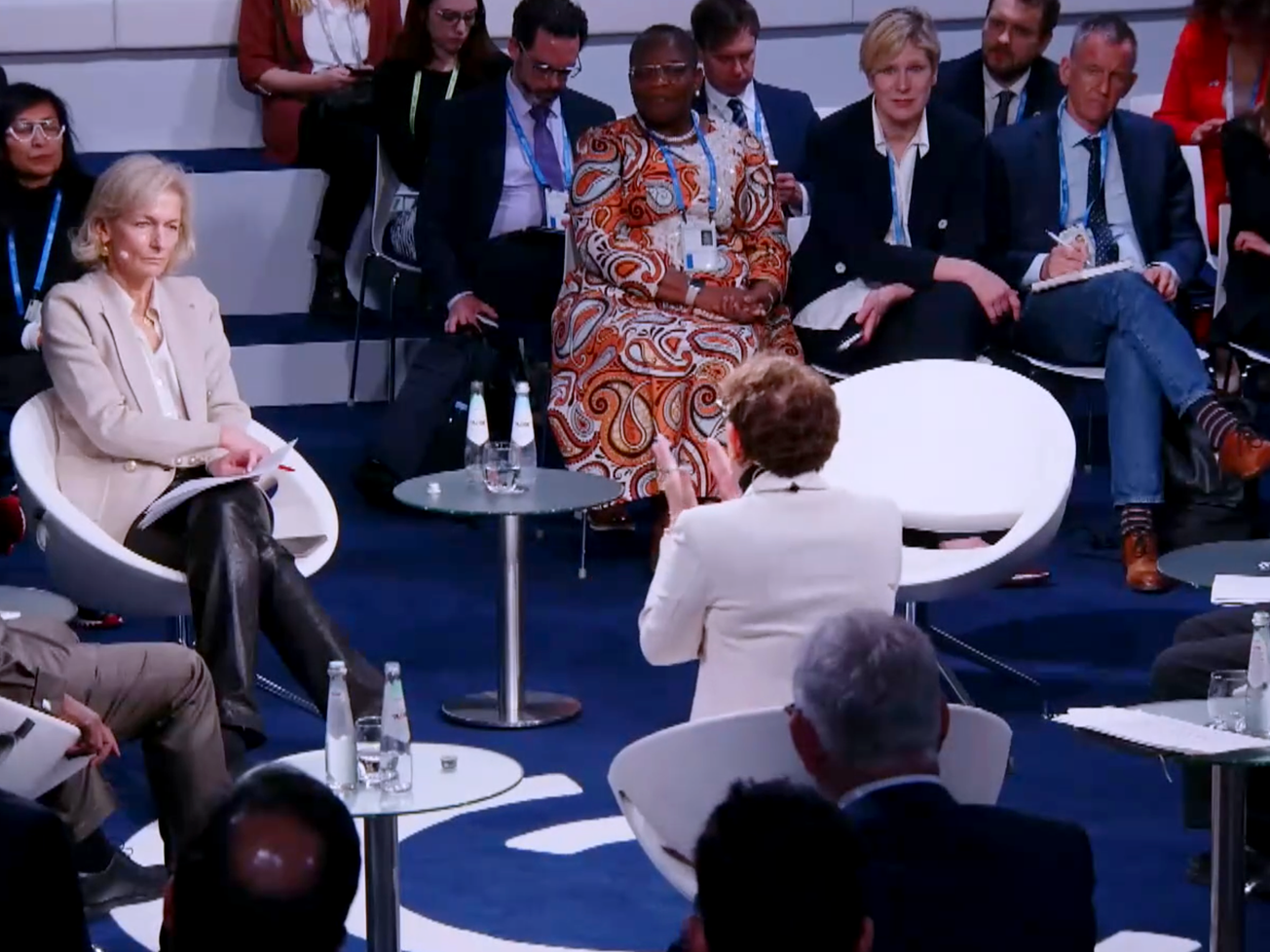U.N. Secretary-General António Guterres remained determined to bring Cypriot leaders together two to three months from now despite acknowledging on Thursday that three days of informal discussions failed to surmount differences over how to restart formal talks.
Discussions hosted by the U.N. chief at the Palais des Nations in Geneva tried to resurrect formal talks on the future of the divided island of Cyprus. Numerous previous such talks have failed.
The "informal 5 +1 meeting" convened Greek Cypriot President Nicos Anastasiades, Turkish Cypriot leader Ersin Tatar and the foreign ministers of Britain, Greece and Turkey — the three guarantors afforded military intervention rights when the island shook off British colonial rule in 1960 — plus Guterres.
Guterres said Turkish Cypriots told him they believe only a two-state solution giving them "equal international status" can reunify Cyprus.
The long-running dispute has also dampened Turkey's efforts to join the European Union since applying in 1987 to E.U.'s predecessor, the European Economic Community. Meantime, he said, Greek Cypriots believe negotiations should aim to achieve a settlement based more or less on the status quo.
"As you can imagine, this was not an easy meeting," Guterres told a press conference.
"We conducted extensive consultations in a succession of bilateral meetings and plenary meetings in order to try to reach common ground," he said. "The truth is that, in the end of our efforts, we have not yet found enough common grounds to allow for the resumption of formal negotiations in relation to the settlement of the Cyprus problem. But I do not give up."
"𝙄 𝙙𝙤 𝙣𝙤𝙩 𝙜𝙞𝙫𝙚 𝙪𝙥.
— UN Geneva (@UNGeneva) April 29, 2021
My agenda is very simple: strictly to fight for the security and well-being of the Cypriots, of the Greek Cypriots and the Turkish Cypriots, that deserve to live in peace and prosperity together," -- @antonioguterres at the end of #CyprusTalks. pic.twitter.com/lTIJ1sN6Q3
Squaring the circle
Starting in 1964, the U.N. Security Council established the U.N. Peacekeeping Force in Cyprus, known as UNFICYP, to prevent more fighting between the Greek Cypriots and Turkish Cypriots.
Turkey invaded after a coup meant to unify the Mediterranean island with Greece. Cyprus was split along ethnic lines into a Greek Cypriot south and a Turkish Cypriot north in 1974. UNFICYP was also given the mission of patrolling a U.N. demilitarized zone that became known as the "Green Line." Turkey, despite being NATO allies with Greece, keeps 35,000 troops in its portion.
Cyprus joined the E.U. in 2004 but only the Greek Cypriot south is treated as a member because it alone is internationally recognized. Turkey is the only nation that recognizes the Turkish Cypriot north.
This year's informal discussions in Geneva, additionally complicated by the COVID-19 pandemic, represented the first attempt to restart formal talks since the last try for a peace settlement failed at the Swiss resort Crans-Montana in 2017.
Guterres said Greek Cypriots and Turkish Cypriots "deserve to live in peace and prosperity together," and that his only aim is to ensure both sides' security and well-being.
Before ending their discussions, Guterres said, the two sides reached "an understanding that probably two to three months should be the kind of the time framework that could be useful" before attempting another round.
"If it is too short of a period, it will not allow for any meaningful positive development," he added. "If it is too long, then it really does not help in our common search for a solution for a settlement. Now, to square the circle is an impossibility in geometry but it is very common in politics."







